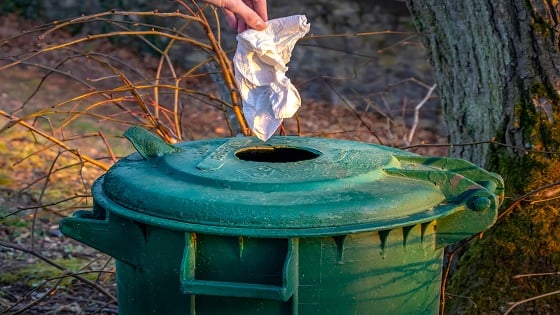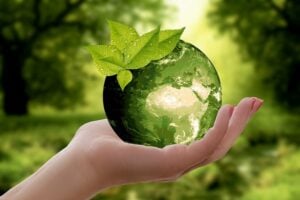
Total Green Recycling ♻️ – Road To A Zero Waste Country
Total Green Recycling ♻️: I know I’m not the only person here in Australia who wishes to have a zero waste country.
But that can be a difficult thing to do, given the current global circumstances. With all the news about land, water, and air pollution, that can be very to achieve.
I know for a fact that no one here is perfectly a zero waste type of person. I, for one, sure am not.
Having said all these, remember that all efforts are appreciated, no matter how small they may seem. The same goes for total green recycling!
A whole bunch of people making efforts to become more environmentally conscious can surely make a significant amount of impact.
Why am I talking about all of these? Well, that’s because we are going to dig deeper into total green recycling and discuss recent local and international news talking about it.
A bit about Waster
Before I move on to the main topic of total green recycling, let me first discuss with you Waster.
Waster, as we always discuss, offers low-cost and reliable bin collections, removal, and disposal prices in the Australian garbage and recycling market without requiring lock-in contracts, no unjustified rate increases, and no hidden charges.
>Download Now: Free PDF Business Owners Guide To Commingled Recycling Bin Services
An innovative solution for all your waste management and recycling needs, we operate throughout the metro regions of Australia.
Click on the blue button to learn more.
Now, back to the main topic.
Read more: See blog on reverse logistics waste management.
Total green recycling: local news
You’d have to agree with me when I say that aiming for total green recycling and zero waste country here in Australia would be difficult.
Luckily, different types of companies and organisations voice out their supports in aiming for a zero waste environment, no matter how long it may take.
Inspired by Australia’s Zero-Waste Initiative, let me further elaborate the ways on how to become a zero waste country.

Become zero waste by…
- Buying more and at farmers’ markets – this helps reduce the amount of packaging used. Instead of buying at supermarkets, which uses so much packaging, try to buy in farmers’ markets that use minimal packaging to keep the freshness of the items. Additionally, aim to buy more items while you’re at it because even if you buy in bulks, you still get to use less packaging.
- Buying items with reusable bags – what better way to reduce paper and plastic pollution than to adopt an alternative – which is bringing a reusable bag – to this, right? You can buy reusable tote bags almost everywhere! Try to purchase at your local market or order online. You can make a case and say that using paper bags is eco-friendly. But at the end of the day, reusing is still much of a better option than recyclable paper bags.
Aside from buying…
- Learning proper waste management at home – if you think about it, everything starts from our respective houses; even in waste management. Manage your waste and see which of your bins quickly go full. After learning which, find ways on how to recycle, or at least reduce, items that go into that certain bin.
- Removing the unnecessary stuff you have responsibly – always buying “green” items doesn’t necessarily mean that you are helping in maintaining or further improving ecological sustainability. For example, let’s say you always go to a certain coffee shop every day and buy a coffee on the go. You notice that they use “eco-friendly” containers and straws, so you say to yourself that buying coffee here and disposing of its container and straw is okay. But to better practice waste management, why not try to buy washable metal straws?
If Australians manage to follow these simple steps and suggestions, I think achieving total green recycling and zero waste environment is well within our sights.
Total green recycling: worldwide news
Let’s me further expand the main topic with the recent worldwide trends about achieving total green recycling and zero waste country.
Wales
Recently, I read a BBC article that reported the Welsh government targeting a zero waste country in 2050. Furthermore, the government stated that they want to see a landfill and incinerator-free environment in Wales.
Ensuring a zero waste community seems like a difficult thing to achieve, much less a zero waste country. How do they achieve this? Well, according to the Welsh government, they would develop more recycling plants that cater to materials deemed unrecyclable by most facilities such as mattresses and nappies.
To add, the government also plans to implement “extended producer responsibility” rules that make manufacturers more responsible for their products and materials’ disposal. The plan also involves a deposit scheme for drinking containers.
The rule also advises non-domestic establishments to separate recyclable materials for later collection.
With that in mind, expect Wales to achieve a 100 per cent zero waste environment in 2050 if the established rules are followed.
Read more: See blog on use by dates.
Singapore
Up next, we move to Singapore, a Southeast Asian country.
Global Citizen reported last June 2019 that Singapore’s private sector currently sets its eyes on pursuing a zero waste future.
This has to do with the fact that in 2035, Singapore’s lone landfill site is expected to reach its maximum capacity on holding waste.
Singapore’s Ministry of the Environment and Water Resources, or MEWR for short, has assigned the year 2019 as the “Year towards Zero Waste” aiming to increase awareness around waste reduction and promote the 3 Rs(Reuse, Reduce, and Recycle).
Economic growth and environmental sustainability have always gone hand-in-hand in Singapore, but everything has its limits.
For Singapore to transition from a linear into a circular economy, the Government of Singapore implemented a new policy.
The policy, inspired by countries like South Korea, follows an Extended Producer Responsibility (EPR) approach and now requires manufacturers of electrical and electronic materials to also manage the collection, transport, and treatment of products.
Read more: See blog on non plastic condoms.
Waster: for your waste and recycling needs
Now that we’ve discussed the topic of total green recycling, let me share with you Waster’s services. To learn more about our pricing and services, check out our waste recycling shop.
Call us on 1300 927 837 or email us at enquiries@waster.com.au for more information!
Leave a Reply Cancel reply

Product categories
Most Popular Posts
-
Commercial Waste Management Services: Reduce Waste Collection Costs! 🚍
-
Medical Waste Disposal: Everything You Need To Find Out In 2024! 💉
-
Rubbish Removal Sydney 2024: Better Bin Collections For Business ✅
-
Clinical Waste Disposal 2024: What To Know About Business Clinical Waste ⚕️
-
Secure Document Destruction 2024: All About Security Bins Shredding 🔒
-
Free Cardboard Recycling 2024: Can I Get Free Cardboard Collection? 📦
-
Confidential Paper Disposal Bins 2024: What You Need To Know About Shredding! 🔒
-
Recycling Bins Australia 2024: Recycling Can Boost Your Profits! ♲
-
Commercial Wheelie Bin Collection: What Businesses Need To Know In 2024 🗑️
-
Commingled Recycling 2024: Why Commingled Bin Is Key To Recycling 🍾













